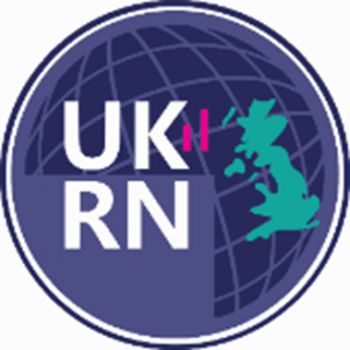Final opportunity to apply for UK Reproducibility Network Open Research training
By: Alice Sambrook
Last updated: Thursday, 7 August 2025

Do you want to support openness, stronger research with greater impact, knowledge equity and social justice?
The UK Reproducibility Network (UKRN) is now accepting applications for the final round of its highly regarded Open Research Programme training courses. The six courses will run throughout the autumn term, with most delivered online and one taking place in person.
About the Open Research Programme (ORP)
Funded by Research England, the Open Research Programme is the UK Reproducibility Network’s flagship initiative, created to help universities across the UK adopt high-quality open research practices in all disciplines.
This forward-thinking programme focuses on five key areas, all aimed at making openness and transparency a normal part of everyday research. One of the most important areas is the training, which equips researchers, students, and professional services staff with the tools and knowledge they need to conduct or support best open research practices.
To mark the final phase of this training offer, UKRN is making all remaining courses available free of charge for the first time.
Want to understand more about UKRN? Watch the short Introduction to UK Reproducibility Network video.
Why Open Research matters
Open Research has real, practical benefits. When research is shared openly, it becomes easier for others to check, repeat (or reproduce), and build on, which makes it more reliable and trustworthy. This leads to higher-quality research because mistakes can be spotted and improvements made more easily. It also helps save time and creates more opportunities for collaboration and impact.
The moral argument for open research is that it makes knowledge more accessible around the world, supporting equitable progress in areas like healthcare, technology and education, ultimately leading to a fairer and more equal society.
For both these reasons, openness is recognised as a core value at Sussex, reflecting our university’s roots in social justice and commitment to high-quality research.
Train the trainer model
The six courses listed below follow a ‘train the trainer’ model. This means that participants are expected to deliver a follow-up training session on the same topic at Sussex within six months of completing the course. Support and expert guidance will be available from the Open Research team at the Sussex Library as needed.
Participants will also be invited to join the UKRN trainers community of practice and will receive a digital badge to show they are a UKRN-accredited trainer.
Who can apply?
Sussex researchers, postgraduate students, technicians and research-supporting professional services staff with the relevant experience are all welcome to apply for these courses.
Click the links below to find more detailed information about the content and intended audience for each course.
The courses on offer:
Teaching Transparent Methods of Empirical Research
- Thursday 25 and Friday 26 September – VIRTUAL
- Wednesday 15 and Thursday 16 October - IN PERSON
- Thursday 11 and Friday 12 December - VIRTUAL
This course supports educators in integrating transparency into research methods, equipping students with the tools to conduct reproducible empirical work. Attendees should have some experience teaching courses involving applied data analysis and/or supervising data-based student research projects. It is recommended that applicants have some familiarity with data analysis and using a software tool that allows scripting.
Implementation of the FAIR Principles
- Tuesday 14 October - VIRTUAL
An introductory level course which would be beneficial for anyone who has an interest in data curation and management at all stages of the data life cycle. Attendees will learn the FAIR principles: how to make data Findable, Accessible, Interoperable, and Reusable.
Byte-sized Research Software Engineers
- 11, 12, 13, 18, 19, 20 November - VIRTUAL
A series of six standalone, mini training courses providing key research software skills in around 1.5-2 hours, for researchers who write code as part of their work. Participants are required to complete Carpentries Instructor Training before attending one or more of these modules and will be issued with a code to do so:
- Code Development & Debugging with IDEs
- Code Style, Quality & Linting
- Intermediate Git
- Code Review
- Unit Testing Code
- Continuous Integration
Experimental Design for Open and Reproducible Research
- Thursday 13 November - VIRTUAL
Delivered in partnership with NC3Rs (National Centre for the Replacement, Refinement and Reduction of Animals in Research), this introductory level course focuses on the Experimental Design Assistant (EDA) tool, with a particular emphasis on improving reproducibility in animal research. It is suitable for researchers, technicians and all others involved in designing animal experiments and/or reviewing experimental design.
- Tuesday 18 November – VIRTUAL
Explore how to use metrics ethically and effectively in research assessment, aligned with initiatives like DORA and the Leiden Manifesto. This course is suitable for Librarians, professional services staff or researchers with an interest in research metrics. Attendees should have a knowledge of the metrics systems used by institutions to measure research outputs, as well as an understanding of the research workflow.
- Wednesday 3 December - VIRTUAL
This intermediate level course teaches best practices for using Electronic Lab Notebooks – software systems that immediately capture data and metadata, promoting transparent data sharing and reproducible methods. This course requires an in-depth knowledge of the research workflow and required documentation.
How to apply
Please contact Open Research Coordinator and Administrator, Alice Sambrook, at: A.sambrook@sussex.ac.uk for an application form or for more information. Applications close on 17 September 2025.
Spaces are limited, and if oversubscribed, more dates will be added and/or applicants will be selected at random from the list (by UKRN) to ensure fairness.

